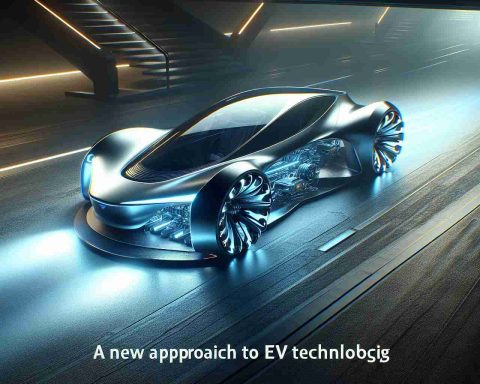Amidst a challenging market landscape, Mercedes-Benz faces a significant downturn in its premium vehicle segment. In 2024, the sales of its luxury offerings have plummeted, coupled with a staggering 23% drop in electric vehicle (EV) sales compared to the previous year. Such declines have raised critical concerns regarding the efficacy of the automaker’s profit-driven strategy, dubbed the “Economics of Desire,” especially as its projected profit margins for passenger cars seem set to fall below the anticipated 8-10%.
In a strategic move to bolster its financial standing, Mercedes initiated a substantial €4.9 billion stock buyback program this year, which, had it not been implemented, could have exacerbated the company’s 14% stock dip recorded last year. As the automaker prepares to introduce new EV models utilizing its proprietary MMA and EA platforms, the pressure to streamline operations has intensified.
Additionally, plans for an aggressive €5 billion cost-reduction strategy, which may involve considerable job cuts, hint at a desperate need for a clear trajectory moving forward. Analysts from Bernstein suggest that while the ongoing buyback initiatives and a potential sale of the €9 billion Daimler Truck stake might offer temporary relief, genuine stock recovery appears elusive without tangible enhancements in operational efficiency and execution. As the auto industry evolves, all eyes are on Mercedes for its next strategic moves.
The Broader Impact of Mercedes-Benz’s Market Challenges
The challenges faced by Mercedes-Benz are indicative of broader shifts in the premium automotive market, reflecting a critical juncture not only for the brand but for the global economy as well. A 23% decline in electric vehicle sales for the luxury automaker is significant, raising questions about consumer trust and preferences in a rapidly changing market. As manufacturers pivot towards electric models, the inability of a storied nameplate like Mercedes-Benz to resonate with buyers suggests a potential crisis in consumer confidence that could transgress to the industry at large.
These developments have far-reaching implications for societal norms around vehicle ownership and sustainability. Green transportation is no longer a luxury but a necessity. A retrenchment in EV sales during a time of heightened environmental awareness points to a concerning disconnect between marketing strategies and consumer expectations. If luxury brands cannot align their offerings with the growing demand for sustainable options, this misalignment could stigmatize premium vehicles as less environmentally conscious, potentially tarnishing their reputations.
Furthermore, the aggressive cost-reduction strategies, including significant job cuts, underscore a trend of automakers prioritizing efficiency over employment stability. Such measures could reshape the labor market within the automotive sector, fostering a culture of job insecurity and enhancing resistance against job automation and industry transition towards digital and electric technologies.
Long-term, as companies like Mercedes-Benz navigate these market fluctuations, we can anticipate emerging trends toward collaboration over competition, especially in electric vehicle technology. The future sustainability of luxury vehicle brands may hinge on their ability to innovate collaboratively, ensuring that they meet not only their financial goals but also contribute positively to the drive towards a more sustainable economy. Mercedes-Benz’s upcoming strategic moves will be pivotal in not just reshaping their brand but potentially redefining how luxury is perceived in an era increasingly dominated by sustainability.
Is Mercedes-Benz Facing a Financial Crisis? Understand the Latest Developments
Mercedes-Benz: A Shift in Strategy Amidst Declining Sales
In recent months, Mercedes-Benz has encountered significant challenges within its luxury vehicle segment. The year 2024 has seen a marked decline, with luxury vehicle sales plummeting and electric vehicle (EV) sales declining by 23% compared to the previous year. These alarming trends have sparked discussions regarding the viability of the company’s profit-centric strategy, known as the “Economics of Desire,” particularly as the projected profit margins for passenger cars are forecasted to drop below the crucial 8-10% range.
Financial Moves: Stock Buyback and Cost Reduction
As part of its strategy to stabilize its financial health, Mercedes-Benz has initiated a €4.9 billion stock buyback program in a calculated move to support its share price amidst a significant 14% stock dip experienced last year. Analysts have pointed out that without this buyback, the company’s stock might have suffered even more severe losses.
Furthermore, the automaker is launching an aggressive €5 billion cost-reduction strategy, which could potentially involve considerable job cuts. This initiative is crucial for improving the company’s operational efficiency and overall profitability.
Looking Ahead: New Models and Platforms
Mercedes is set to unveil new electric vehicle models, developed on its proprietary MMA (Modular Architecture) and EA (Electric Architecture) platforms. These innovations are expected to play a vital role in revamping the brand’s image and product lineup in the competitive EV market.
Insights and Market Analysis
The challenges facing Mercedes-Benz underscore a broader trend in the luxury automotive market, where premium brands must navigate consumer demand shifts toward electric vehicles and sustainable practices. Analysts from Bernstein have suggested that while immediate financial maneuvers like buybacks and asset sales, including the €9 billion Daimler Truck stake, may offer temporary relief, the company’s long-term vision must greatly enhance operational efficiency and execution to achieve sustainable recovery.
Pros and Cons of Mercedes-Benz’s Current Strategy
Pros:
– Stock Buyback Program: Helps stabilize share price.
– Innovative EV Models: New platforms may revitalize interest and sales.
– Cost Reduction Efforts: Aims to improve margins and operational efficiency.
Cons:
– Declining Sales: A 23% drop in EV sales raises concerns about market competitiveness.
– Job Cuts: May lead to loss of talent and employee morale.
– Profit Margin Concerns: Projected margins falling below expected levels.
Predictions for the Future of Mercedes-Benz
As the automotive landscape continues to evolve rapidly, Mercedes-Benz must adapt to maintain its luxury status. Observers anticipate that without clear advancements in vehicle innovation and operational improvements, the company might struggle significantly to recapture market share lost to emerging competitors.
Conclusion
Mercedes-Benz stands at a critical juncture, faced with both challenges and opportunities. As the automaker implements its strategic plans and introduces new technologies, the market watches closely to see if these changes can restore confidence and drive performance.
To learn more about the challenges and strategies facing the automotive industry, visit Mercedes-Benz.


















